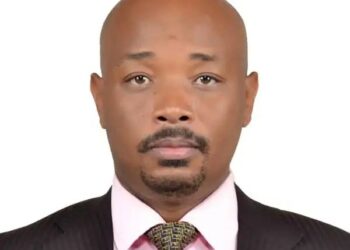Consider this; General Muhoozi Kainerugaba, a senior military officer, has been increasingly visible in Uganda’s political landscape. His birthday party bonanzas and social media barrages have fueled speculation about his political ambitions.
All this upon the backdrop of ongoing speculations of being his father’s successor. No fuss, the debate is real. Joseph Kiiza Kabuleta was right after all and now, all political pundits agree.
And then comes the Lumu Bill with the potential to centralize power within the opposition, making it easier for the NRM to strategically manipulate the opposition dynamics.
Think, by involving all opposition MPs in the selection of the Leader of opposition , the NRM will find it easier to influence the process and thereby weaken opposition unity.
This bill requires broader consultations and subsequent approval within the opposition. This will lead to fragmentation and infighting. And a divided opposition will be less effective in challenging the ruling NRM and thereby create a more favorable environment for Museveni’s succession plans to manifest.
Furthermore, there is the issue of strategic appointments, by mandating consultations for committee appointments, The Lumu Bill will allow the ruling party to strategically place loyalists within key opposition roles, and thereby further weakening the opposition’s ability to present a united front.
What does this mean in a broader perspective?
The Democratic Processes in Uganda will be undermined further by creating a facade of inclusivity while actually consolidating power within the ruling party. This in and of itself paves the way for a less bumpy succession of power from father to son.
In as much as politics is about public perception, the way people perceive you has a bearing on how they receive you. This will play a crucial role in the prevailing political dynamics. If the bill is seen as a tool for political manipulation, it will erode public trust in the legislative process and further polarize the already polarized political landscape along pre-existing historical ethnic cleavages.
I have seen proponents of the bill within these woods arguing that it will promote inclusivity and accountability within the opposition, which could strengthen democratic processes in the long run. And that it will enhance opposition effectiveness by involving more stakeholders in decision-making processes and thereby bring about a more effective and representative opposition, capable of better challenging the ruling party.
Far from reality.
Now, let’s juxtapose all this with Norbert Mao’s Proposal which seeks to have the President be elected by Parliament instead of through a popular vote. This move will centralize the election process within a smaller, more controllable group. Given the ruling party’s significant influence over Parliament, this change will facilitate the election of a preferred candidate that being Muhoozi Kainerugaba It will reduce public involvement in the presidential election which by extension will minimize resistance and dissent and thereby making it easier to install General Muhoozi as President.
Connect the dots, these legislative changes combined will strategically consolidate power within NRM and weaken the opposition. The Lumu Bill’s potential to fragment the opposition and Nobert Mao’s proposal to centralize the presidential election process within Parliament will create a political landscape that favors Muhoozi’s ascent to power. This is a coordinated effort to facilitate a dynastic succession.
In as much as the The Lumu Bill promises what it does and Mao’s proposal wants what it wants, clearly both combined have the potential to facilitate General Muhoozi’s succession of power. If it looks like a duck and walks like a duck, it’s highly likely it is a duck.
Nevertheless, its true impact will depend on its implementation and the broader political context in which it operates and how deep Ugandans have been hypnotized over the last several decades of President Museveni’s spell.
Do you have a story in your community or an opinion to share with us: Email us at editorial@watchdoguganda.com













